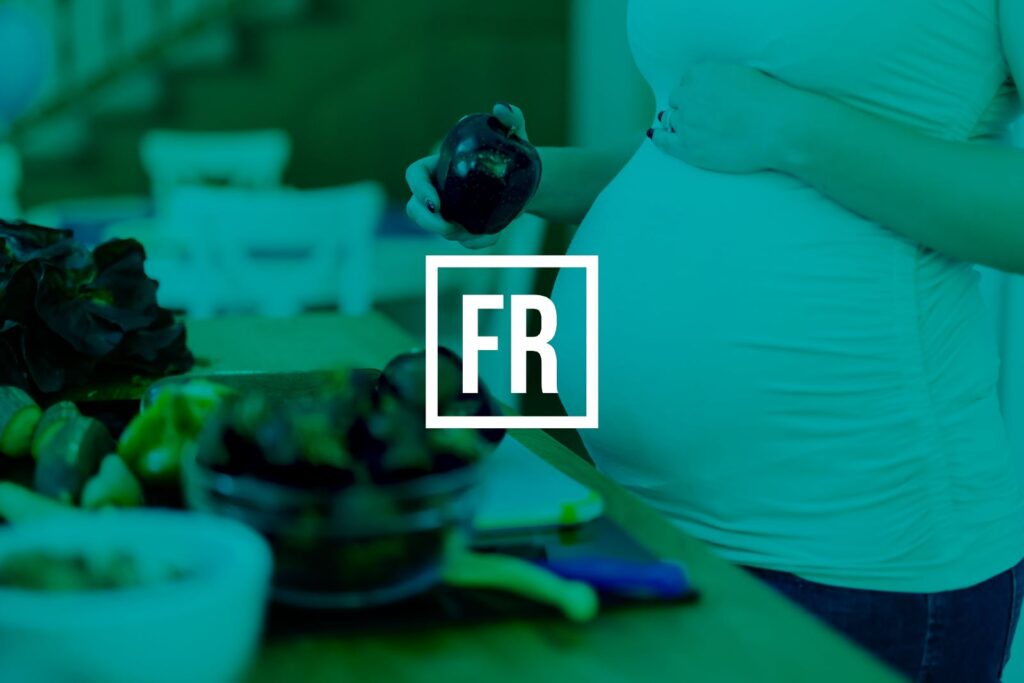Research has shown that making changes in your diet and lifestyle can boost both egg and sperm quality ahead of IVF, improve your chances of success and also reduce the risk of miscarriage. Couples should think about making changes in their diet and lifestyle at least three months before IVF treatment. They should also consider taking certain key nutrients in supplement form. This is especially important if you are over the age of 35, had a number of failed IVFs or have experienced recurrent miscarriages.
Why three months?
Because it takes approximately three months for the follicles on the ovaries to develop before one is mature enough to release an egg at ovulation (or more during IVF). Women are born with their store of eggs and so although it is not possible to change ovarian reserve, it is possible to change the quality of those eggs. By improving the quality of your eggs, you are giving yourself the best chance of success and also preventing a miscarriage. When you are going for IVF, this will help your eggs to be as healthy as possible so as to give the technique the best chance. With men, it also takes at least three months for a new batch of sperm cells to mature, ready to be ejaculated. Men produce sperm all their lives, so it is possible to not only to improve the quality but also the quantity with lifestyle and nutritional changes. Although it goes without saying that a healthy diet is crucial to a successful pregnancy and a healthy baby, many people are unaware of the fact that what you eat can help to improve egg and sperm quality ahead of IVF. The following should be included:
- Plenty of fruit and vegetables
- Complex carbohydrates – wholegrains like brown rice, oats and wholemeal bread
- Organic foods where possible
- Oily foods such as fish, nuts, seeds and oils
- Reduced intake of saturated fats from dairy products
- Increased intake of fibre
- Avoid additives, preservatives and chemicals, such as artificial sweeteners
- Avoid sugar, both on its own and hidden in food
Having four cups of coffee a day makes it 26% less likely that a woman will conceive and drinking only 2 cups of coffee a day is associated with a 25% increased risk of miscarriage. And problems with sperm quality are connected with increased coffee intake. (Nawrt Petal, 2003, Effects of caffeine on human health. Food Addit Contam, 20, 1, 1-30)
For women, alcohol can make it more difficult to get pregnant with only just three alcoholic drinks or more a week. Alcohol can lower sperm counts and cause abnormalities in the head of the sperm which is important for healthy fertilisation of the egg. Stopping smoking is important for both the man and woman. It is linked to an increased risk of miscarriage and also reduces the chances of an IVF treatment being successful. If couples smoke during the IVF cycle the number of eggs retrieved is decreased by 40 per cent. Also, the overall success rate of the IVF was 44 per cent for non-smokers and 24 percent for smokers (Klonoff-Cohen H et al, Effects of female and male smokingon success rates of IVF and gamete intra-fallopian transfer. 2001; 16: 1382-90). Smoking can also affect the sperm count, motility and the morphology (the shape of the sperm, whereby it could have two heads or two tails if the morphology is abnormal). Smoking also has a negative effect on the head of the sperm making it harder to fertilise an egg. It is thought that nicotine overloads the receptors on sperm, affecting their ability to bind to the egg. And if a couple has a combination of four negative lifestyle factors (including tea/coffee, smoking and alcohol) it can take a couple seven times longer to get pregnant.
Fertility Boosting Supplements
We know that certain nutrients increase the chances of getting pregnant and staying pregnant.
Folic Acid
It is well known that folic acid can prevent spina bifida. Folic acid is undoubtedly important, but it is just part of the very important B-complex family of vitamins that are necessary to produce the genetic materials DNA and RNA. Always choose folic acid in the active folate form for effective absorption.
Zinc
Zinc is the most widely studied nutrient in terms of fertility for both men and women. It is an essential component of genetic material and a zinc deficiency can cause chromosome changes in either men or women, leading to reduced fertility and an increased risk of miscarriage. Men, who were subfertile, were given a combination of zinc and folic acid and showed a 74% increase in total sperm count.
Selenium
Selenium is an antioxidant and helps to prevent chromosome breakage, which is known to be a cause of birth defects and miscarriages. Good levels of selenium are also essential to maximise sperm formation. Selenium supplementation given to infertile men increased sperm count, motility and the number of normal sperm.
Vitamin E
Vitamin E is another powerful antioxidant and has been shown to increase fertility when given to both men and women. With men, vitamin E helps to increase fertilisation rates during ICSI treatments. If a woman over the age of 35 is told that her fertility problems are caused by her age, then it is likely that she could benefit from taking both vitamins E and C. These antioxidants have been shown to significantly reduce age-related ovulation decline.
Vitamin C
Vitamin C is also an antioxidant and we know that women who take vitamin C while they are having IVF have a significantly increased pregnancy rate. Vitamin C is also good for men and can help to increase sperm counts by up to a third. Antioxidants in general (and that includes zinc, selenium, vitamin C and vitamin E) have been shown to have a major impact on male fertility. A review of 34 studies with men going for IVF/ICSI cycles has shown that when men take antioxidants their partner is five times more likely to have a live birth compared to a placebo.
Amino acids
Two amino acids, L-arginine and L-carnitine are particularly important for male fertility. The L-arginine is essential for healthy sperm production and protects the sperm against oxidative damage. The higher the levels of L-carnitine in sperm cells, the higher the sperm count and motility.
Vitamin D
Vitamin D helps to balance the immune system which is important in getting and staying pregnant. Vitamin D decreases the Th1 autoimmune response, but it also helps to promote the Th2 cells which the woman’s body needs to maintain a pregnancy. Vitamin D is also important for male fertility as low levels of this nutrient is associated with low sperm motility and more abnormal forms.
Co-enzyme Q10
Co-enzyme Q10 is a vitamin-like substance that is contained in nearly every cell of the body. Because of its role in energy production, it is a significant nutrient for men if sperm motility is poor. Lower levels of co-enzyme Q10 have been found in men with poor sperm motility and supplementing with this nutrient led to a significant improvement. It is also useful for men who have a higher proportion of abnormal sperm or sperm with high amounts of DNA damage.
For women it is now thought that co-enzyme Q10 may be helpful for women who have been told they have ‘old’ eggs because of their age and this nutrient can be helpful in improving egg quality. Take a good supplement designed for fertility containing all the important nutrients mentioned above including co-enzyme Q10 and vitamin D3 (see NHP’s Advanced Fertility Support for Women and Advanced Fertility Support for Men, www.naturalhealthpractice.com).
Omega 3 fatty acids
Sometimes immune problems may be affecting a woman’s ability to get and stay pregnant. One of the immune antibodies measured is called antiphospholipid antibodies (APAs). These blood-clotting antibodies can prevent implantation and cause recurrent miscarriage by attacking the cells that build the placenta. Research has shown that omega 3s given to 22 women with APAs who already had 3 or more miscarriages went on to have 23 pregnancies without a further miscarriage. Omega 3 fatty acids are also important for male fertility as supplementing with omega 3 fish oils has shown to increase sperm counts.








